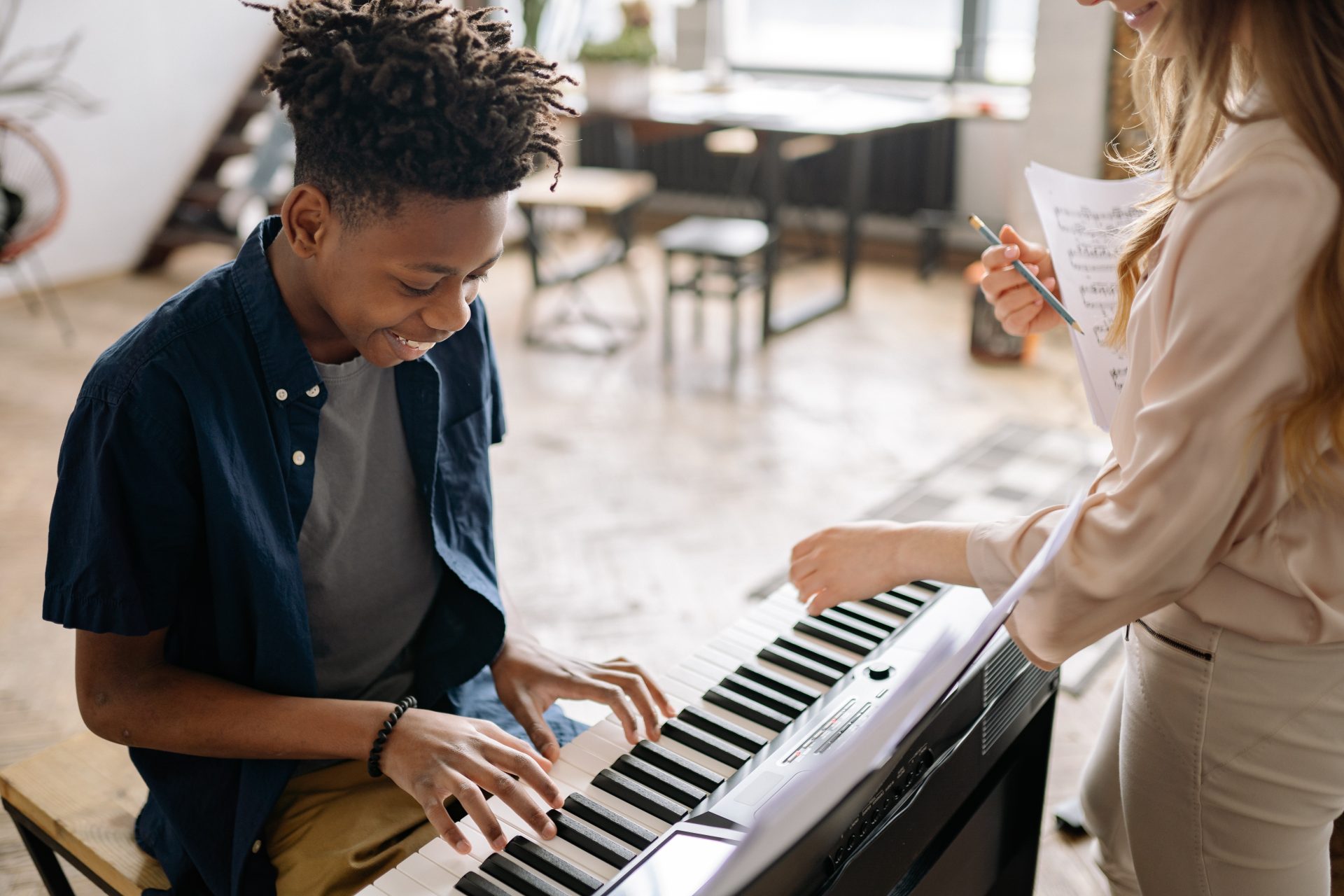Student retention is one of the most important metrics for any music instructor. Keeping students engaged and interested is the best way to improve your retention rate. Here are several tips on how to keep both children and adult students motivated to learn and play.

For children
1. Maintain a positive attitude
It goes without saying your attitude sets the tone of the lessons. A positive attitude makes lessons fun and engaging, especially for younger students, while an unpleasant attitude indirectly says you would rather be somewhere else. Students will pick up on this and may mirror this attitude, tuning out of the lesson completely.
2. Break down large goals into smaller, more manageable tasks
Structured lesson plans are a great way to keep younger students on track but may leave them feeling overwhelmed. Instead of having students work toward a larger goal, break each step down into smaller tasks. This will allow them to work toward the goal at their own pace while retaining more of the material.
3. Keep a dedicated log to track and promote progress
We find teachers who provide their students with a recap of what was covered during their lesson along with targeted practice guidelines tend to have higher student retention rates. These logs, which can be kept in a shared file, such as Google doc or in a physical notebook, allow students to recall what was covered during previous lessons and practice efficiently, which promotes their progress.
4. Encourage students to learn music they’re interested in
One of the best ways to keep a student engaged in lessons is to incorporate their musical interests into the curriculum. Ask them about songs, artists, or genres they enjoy and introduce them into the students’ repertoire.
5. Reward their achievements
We all love being rewarded, especially younger students. Rewarding a student with something as simple as a sticker or a stamp after accomplishing a goal or mastering a short piece can be great motivators for success.
6. Make lessons enjoyable and interactive
Teaching through games is a great alternative to supplement more traditional ways of learning such as methodology and scale books. Occasionally having your students compose short pieces to play for fun is another way to keep lessons from being monotonous. Setting aside some time to play along with the student is another way to make lessons fun.
7. Offer performance opportunities
Children love the feeling of being able to proudly show others a new skill they’ve learned. Parents often inquire about possible performance opportunities for their children. Providing students with a platform to showcase what they’ve accomplished to their loved ones and peers through recitals and/or other performance opportunities is another great way to improve your student retention rate.
8. Consistency is key!
Keeping lesson schedules consistent can play a big part in improving a student’s retention rate. Children tend to feel more confident and develop healthy habits (such as practicing!) when a consistent routine is in place. Lessons should be taken weekly to ensure the material stays fresh in a students’ memory. Both parties (teacher and student) should keep cancellations to a minimum, as frequent cancellations increase the likelihood of students losing interest. In situations where a cancellation is unavoidable, it is strongly recommended a makeup lesson be scheduled, whether by adding additional time to a regularly scheduled lesson or meeting on an alternate day.

For adults
1. Establish rapport
Adult learners are typically new to music or former childhood music students looking to rekindle their interest. They may have preconceived notions or negative past experiences which can make them hesitant or discouraged. Establishing rapport by building a connection through shared interests (whether they’re music related or not) will not only make lessons more comfortable and enjoyable but may result in a more motivated long-term student.
2. Be flexible and patient
Adult students have responsibilities such as work and family commitments that may prevent them from attending lessons or practicing regularly. Consider how your student’s lifestyle will affect how much time they can dedicate to learning their instrument and adapt accordingly. Instead of adhering to a rigid schedule, allowing an adult with a demanding work schedule flexibility with scheduling, within reason of course, may make all the difference in whether they stick with their lessons.
3. Introduce efficient practicing habits to promote progress
Adults may find learning an instrument is more difficult than expected and grow frustrated if their progress doesn’t meet their expectations, and thus, quit. And unlike children, adult students do not have someone to remind them to practice. Being upfront about practice being a key factor in determining progress and helping to instill good practice habits by guiding the student on how to incorporate meaningful practice sessions into their daily lives can go a long way in improving your student’s experience.
4. Include repertoire geared toward their music interests/goals
Adult learners usually start lessons with a goal in mind, whether it be to learn to play songs of a specific genre, sing in their local church choir, or simply play for leisure. Take time to get to know your student musically. What are their favorite songs or genres? Introducing repertoire geared toward meeting these goals and interests will improve their overall experience and hold their interest.
5. Reward their achievements
Like children, adults benefit from being told they’re doing a great job. Unlike younger children however, they’re more aware of their playing abilities and progress and may need a morale booster. It is important to provide praise and encouragement to your adult students just like you would your younger students.
6. Make lessons interactive
Another excellent way to make lessons more fun is to play along with the student or dedicate some time at the end of the lesson for free play/jam sessions. This is especially great for adult students looking to play for leisure or play with like-minded individuals.
And lastly, regardless of whether you’re working with children or adult students, do not deflect the blame onto the student. While it may be easy to jump to the conclusion that nothing more could have been done to encourage a student to continue with lessons, this is not always the case. Of course, there are going to be situations in which students quit that are beyond your control such as health reasons or financial hardship. However, we encourage teachers who notice a pattern of students quitting not long after their initial registration to review their teaching methods and styles and focus on potential areas of improvement. Keep in mind, first impressions are important! The Musika teachers with the highest student retention rates also have the highest registration rates, with the vast majority of these students going on to take hundreds of lessons spanning several years.







